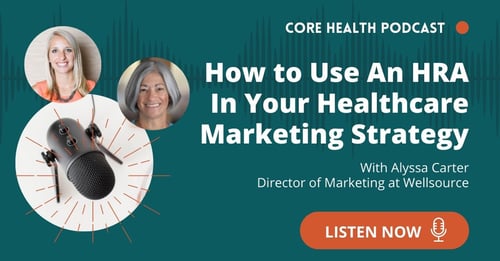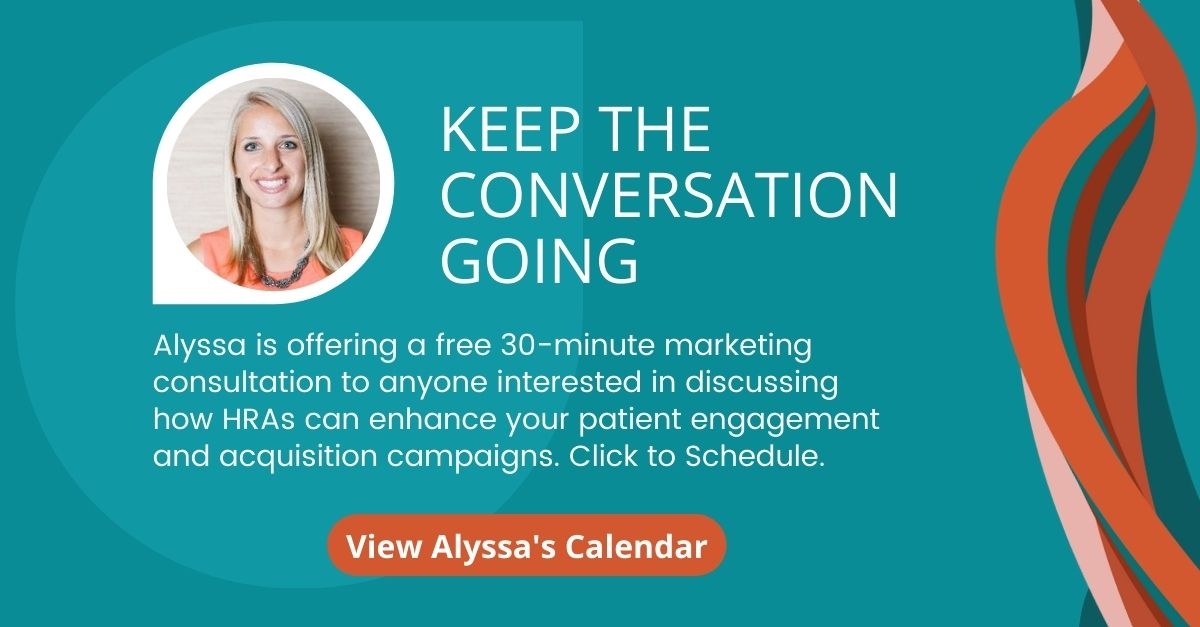Alyssa Carter, Director of Marketing at Wellsource, recently joined the Core Exchange podcast for an episode titled, “How and When Health Risk Assessments Fit into Your Marketing Campaign: Using digital tools to engage more patients in their care.” Together with host Laila Waggoner, Alyssa dug into the ways HRAs are an effective tool to engage patients, when to use an HRA in your marketing strategy, and tips for a successful engagement program.
Listen to the podcast episode here
During the episode, Alyssa outlined three questions she always asks when consulting with a marketing team that’s considering health assessments for patient acquisition and engagement.
What is your goal for the HRA campaign?
In a best-case scenario, a healthcare marketing team using an HRA would have defined goals and metrics, including:
- Which service-lines they want to drive patient volume or revenue towards
- If there are particulars about the patient audience to consider — age, sex, health condition, etc.
- Metrics for success, such as a certain number of appointments scheduled, or visits to a webpage
- Benchmark metrics, such as how programs have performed in the past
This kind of strategic overview will ensure the HRA is meeting expectations and achieving the right results.
How will you promote the HRA?
When considering promotion tactics, you’ll want to consider variables such as target patient demographics or psychographics, service-line and health conditions, and particulars of the market you serve.
You cannot expect the HRA to perform in a vacuum — think about the way a patient will arrive at the HRA, and build it into your digital front door experience. Will you be promoting it via social media ads? In your newsletter? On paid search? Each of these tactics may require different ad copy or targeting depending on your audience and their preferences.
How will you follow up with patients after they take the HRA?
Once a patient fills out an HRA, do you have a solid plan for follow-up? Maybe you’ll segment those who are considered high risk, and target them specifically with individual phone calls from patient navigators. Maybe you plan to have a post-HRA email marketing strategy. Or maybe people will click directly into your booking tool from the results page of their assessment.
Case Study: How one hospital found success acquiring new patients for bariatric surgery consultations using targeted follow-up calls from patient navigators. Download Now
Another important consideration: make sure you’re in sync with your operational team or the service-line you’re using to schedule patients. For starters, does the service-line you are supporting have access to support new patients in a timely manner?
It’s important to ensure that frontline workers are aware of the campaign and understand what questions the HRA asks to engage patients to come in and seek care. This ensures a strong patient experience and aligns marketing campaigns with clinicians for a warm handoff.
Once you know your goals, your promotion strategy, and you’re ready to operationalize your service-line, you’re ready to engage patients in a meaningful digital experience and begin growing service-line revenues.









